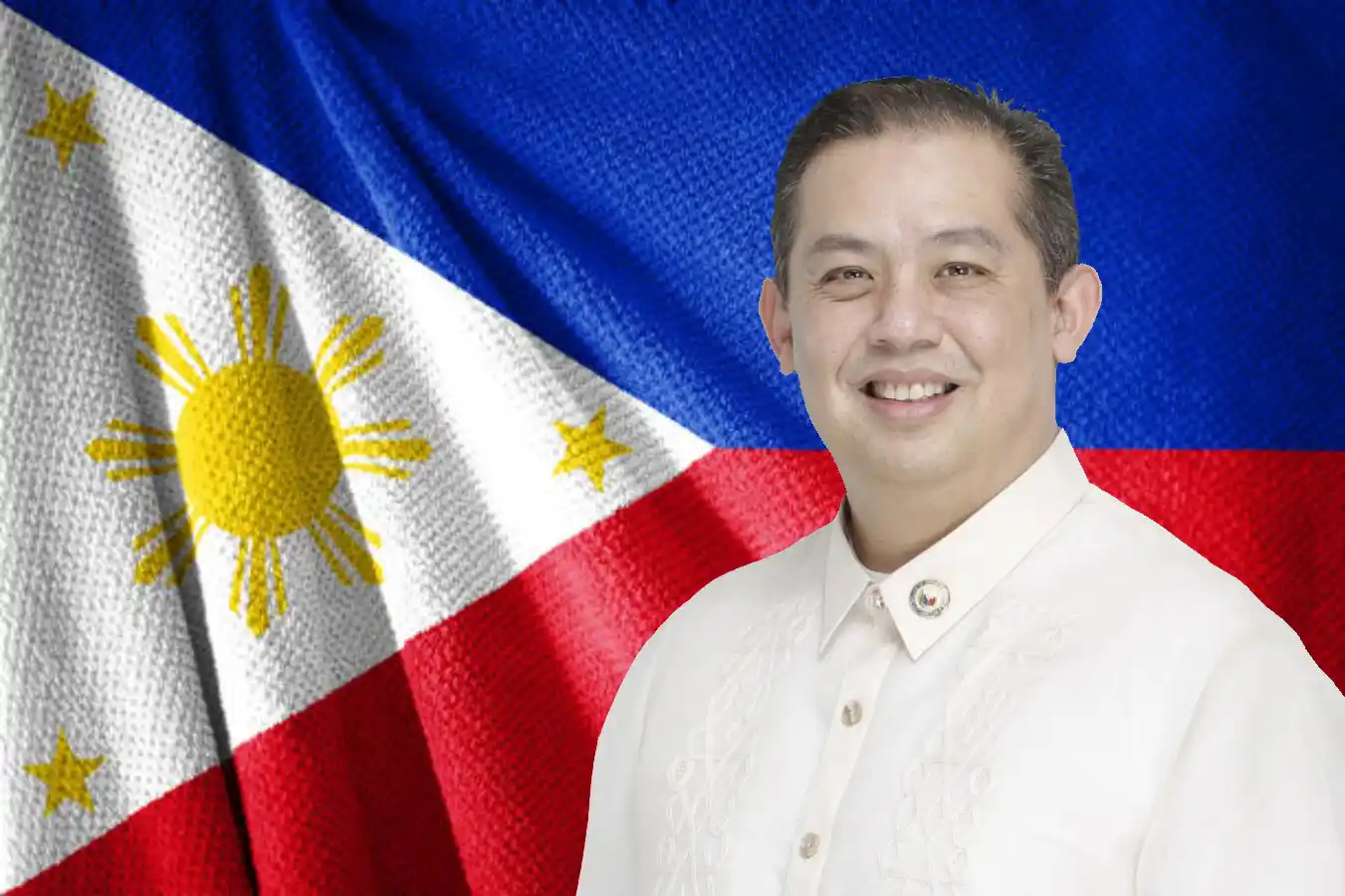Manila – In a significant show of political backing, 285 lawmakers have rallied behind Martin Romualdez to continue his tenure as Speaker of the Philippine House of Representatives. This endorsement, announced recently, underscores Romualdez’s firm grip on legislative leadership at a time when the Philippines faces domestic governance challenges and escalating regional tensions in the South China Sea. As President Ferdinand Marcos Jr. pushes for renewed discussions on an ASEAN Code of Conduct to address maritime disputes, Romualdez’s role in unifying congressional support for national priorities has come into sharp focus.
A Vote of Confidence in Romualdez
The overwhelming support for Romualdez, who has held the position of House Speaker since 2022, reflects a desire for continuity within the Philippine Congress. Of the 316 members of the House, 285 signed a manifesto pledging allegiance to his leadership, citing his ability to foster unity and push forward legislative agendas aligned with the Marcos administration’s goals. This near-unanimous backing is seen by political analysts as a strategic move to ensure stability in a period marked by both internal policy debates and external geopolitical pressures.
Romualdez, a close ally of President Marcos, has been instrumental in shepherding key legislation, including budgetary reforms and infrastructure initiatives. His supporters argue that his leadership has provided a steady hand in navigating the often fractious dynamics of Philippine politics. “Speaker Romualdez has shown remarkable dedication to the Filipino people by ensuring that the House remains a pillar of progress” said Representative Juan Miguel Arroyo, one of the signatories to the manifesto, as reported by local media outlets.
However, some critics within political circles have raised concerns about the concentration of power within the Marcos-Romualdez alliance, suggesting that such overwhelming support may stifle dissent or alternative perspectives in the House. While no formal opposition has emerged, whispers of discontent among a minority of lawmakers highlight the delicate balance Romualdez must maintain to sustain his mandate.
Governance as a Public Performance
Beyond the walls of Congress, Romualdez’s leadership is being tested by broader questions of governance in the Philippines. Public perception of political leaders often hinges on visible performance—how policies translate into tangible improvements for citizens. In recent months, the Marcos administration, with Romualdez’s legislative backing, has faced scrutiny over issues ranging from economic inequality to disaster response, particularly in flood-prone regions like Mindanao.
Analysts note that Romualdez’s ability to align the House with the executive branch’s priorities will be crucial in addressing these domestic challenges. For instance, recent floods in Mindanao have displaced thousands, prompting calls for urgent government intervention. Lawmakers under Romualdez’s leadership are expected to expedite budgetary allocations for relief and infrastructure resilience, a task that will test the House’s efficiency and responsiveness. “The people of Mindanao need more than promises; they need action” said a local community leader in Davao, reflecting a sentiment echoed across affected areas.
Romualdez has publicly committed to prioritizing disaster response legislation, but the scale of the challenge—coupled with budgetary constraints—means that results may take time. If delays occur, public trust in both the Speaker and the administration could be at risk, underscoring the performative nature of governance in the Philippine context.
Regional Tensions and the South China Sea
On the international front, Romualdez’s legislative influence extends to supporting President Marcos’s diplomatic efforts, particularly regarding the South China Sea. Marcos has signaled his intent to revive discussions on an ASEAN Code of Conduct, a framework aimed at managing disputes in the contested maritime region where the Philippines, China, and several Southeast Asian nations have overlapping claims. The urgency of this initiative has intensified amid recent incidents of Chinese vessels encroaching on Philippine waters, heightening tensions and drawing international attention.
Romualdez has voiced strong support for Marcos’s stance, emphasizing the need for a unified national position. The House, under his leadership, is likely to play a key role in ratifying any agreements or funding defense and maritime security measures. “We stand firmly behind the President in asserting our sovereignty and ensuring peace in the region” Romualdez stated in a recent address to Congress. This rhetoric aligns with the administration’s broader strategy of balancing diplomatic engagement with a firm defense of territorial rights.
However, crafting an effective ASEAN Code of Conduct remains a complex endeavor. Previous attempts to finalize such an agreement have stalled due to disagreements among member states, particularly over China’s expansive claims. While Romualdez’s backing provides domestic political capital for Marcos, the real test lies in whether ASEAN can present a united front. Some analysts speculate that without binding commitments, the code may remain a symbolic gesture rather than a practical solution. If confirmed, such an outcome could undermine confidence in regional diplomacy.
Domestic Challenges and Political Stability
Back on the domestic front, Romualdez’s leadership is also being shaped by the need to address systemic issues such as poverty, infrastructure deficits, and disaster preparedness. The recent floods in Mindanao serve as a stark reminder of the Philippines’ vulnerability to climate-related crises. Over 50,000 families have been affected, with local governments struggling to provide adequate shelter and aid. The House, under Romualdez, has pledged to fast-track emergency funding, including a proposed allocation of 500 million Philippine Pesos (US$8.5 million) for relief efforts.
Yet, funding alone may not suffice. Experts argue that long-term solutions—such as improved urban planning and climate-resilient infrastructure—are essential to prevent recurring disasters. Romualdez’s ability to push for such reforms will likely influence his legacy as Speaker, especially as public expectations for accountability grow. Political observers note that while his current support base is robust, failure to deliver on key issues could embolden opposition factions within the House.
Moreover, the interplay between domestic governance and regional diplomacy adds another layer of complexity to Romualdez’s role. Balancing the immediate needs of Filipino citizens with the strategic imperatives of the South China Sea dispute requires deft political maneuvering. Romualdez’s supporters argue that his experience and alignment with Marcos position him well for this dual challenge, though skeptics caution that over-reliance on executive influence may limit the House’s independence.
Looking Ahead: A Test of Leadership
As Martin Romualdez solidifies his position as House Speaker with near-unanimous support, the road ahead is fraught with both opportunity and risk. Domestically, his leadership will be judged by the House’s ability to respond to pressing issues like disaster relief and economic disparity. Regionally, his role in backing President Marcos’s push for an ASEAN Code of Conduct could shape the Philippines’ standing in Southeast Asia, particularly in the contentious South China Sea.
For now, Romualdez enjoys a strong mandate, but maintaining this support will depend on tangible results. As the Philippines navigates these intertwined challenges, questions linger about how his tenure will be remembered—whether as a stabilizing force in turbulent times or as a missed opportunity for deeper reform. Only time, and the actions of the House under his stewardship, will tell.
















